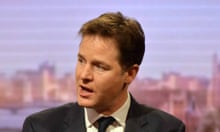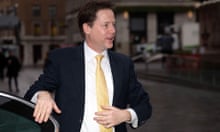The claim that all that is needed for evil to triumph is for good people to do nothing has become a well-thumbed text for many sermons of our times. Where the alleged abuse of sexual power is involved, especially when allegations are strongly and perhaps honestly denied, the hesitation to act can be understandable. Yet not to act can be at least as damaging as to act, and uncertainty about how to proceed seems a disturbingly common institutional response.
Like the BBC over Jimmy Savile in recent weeks, the Liberal Democrats have faced difficult press allegations in recent days. Last night the Liberal Democrats found themselves scrambling to clarify whether they looked in the other direction over claims about their former chief executive Chris Rennard, allegations which he strongly denies. With a critical byelection looming this week, the political party has not been particularly sure-footed in dealing with the challenge, any more than the BBC, in a different set of circumstances, proved to be over Savile.
In recent decades other institutions have faced similar challenges, not with great distinction either. For the church in Ireland and Anerica, dealing with charges of inappropriate conduct has been an enduring problem. Abuse by priests generated a worldwide existential crisis for the whole Roman church. It has not been resolved by apologies that were too late and too conditional, and which always seemed written with one eye not just on the law courts, but on minimising the challenge to the church's power and leaders.
No two situations of this kind are the same, and it would be dangerous to conflate very different cases which involved very different claims and very different institutions. Yet the Liberal Democrats' initial response to the claims about Lord Rennard has echoes of others' responses. They too struggled to disentangle the need to do the right thing with protecting their institutional reputation. In each case there is undoubtedly an awareness that they face articulate and dangerous enemies, internally and in the media. But this is not enough to explain, let alone excuse, the generally inept responses.
Last night, Nick Clegg was forced to admit knowing about general concerns over Lord Rennard. It is unlikely to be the end of the matter, any more than it has been in the problems faced by the BBC. In all such cases, the problem is not just the allegation itself but what to do about the claims and the publicity. The fear that there may be more risk to acting than not acting is a genuine disincentive. These matters are rarely straightforward. Yet, in spite of the real difficulties, the right thing is to respond as promptly and fairly as possible to allegations rather than push them away in the hope they will somehow disappear.







